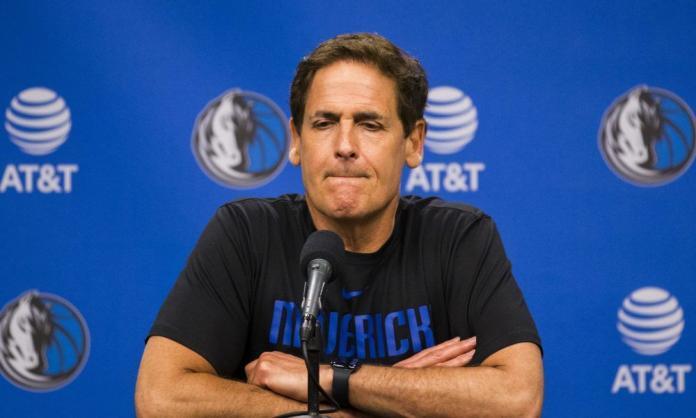Due to the rapidly changing landscape because of COVID-19, the overwhelming likelihood is that when you read this post, it will have obsolete information of how sports organizations are trying to take care of workers who have lost their jobs due to the outbreak and indefinite cancellation of events. This is no accident, nor is it fair to overtly criticize the organizations for their handling of this burgeoning crisis. The financial assistance provided to workers is haphazard and hinges on the organization and players. CBS Sports has a comprehensive list of what teams and individuals are doing to help these unheralded but vital cogs.
As an example of how the response has varied, two of New York City’s most reviled sports owners – New York Knicks and Rangers owner James Dolan and New York Mets owners the Wilpons – made drastically different decisions in how they will handle employees.
Dolan was diagnosed as having coronavirus himself, but is reportedly recovering well. The shutdown of the NBA and NHL and other events being cancelled has left Madison Square Garden, which he also owns, empty. For all the mostly justified distaste Dolan has engendered for his running of the Knicks, he has been generous with the workers at MSG by agreeing to pay them their salaries through at least May 3 and possibly longer.
By contrast, the Wilpons did not take the lead of Dolan. Gary Sheffield Jr. tweeted the following with an image of a letter sent to staff:
JUST IN: Letter sent to all staff members for the New York Mets. pic.twitter.com/9NAh6diNlr
— Gary Sheffield Jr.(blue check mark) (@GarysheffieldJr) March 30, 2020
Based on that, the Mets were planning to provide nothing other than the basic “thank you for your service” form letter without any benefits or pay for displaced workers. Since it’s the Wilpons and their reputation among fans and media would need to climb 20 stories to reach “terrible” status, this was not unexpected. Once their decision became public, the Mets unsurprisingly did a complete about-face.
We have established a $1.2M program to provide COVID-19 relief to ballpark employees. #Mets pic.twitter.com/gLVsHzyNpo
— New York Mets (@Mets) April 3, 2020
That they were intent on not paying their workers is indicative of what some organizations are trying to do and only backtrack when confronted with public outrage. For every Mark Cuban who is doing the maximum for his employees, there are owners who are looking at the situation in a business sense and saying, “no work, no pay.” As cold as it sounds, they certainly have the right to do that, despite negative responses to the contrary.
Obviously, it would sow good will were they to be generous. Yet it is a relevant question as to when those payments for relatively replaceable workers is required to cease without being criticized for it. To say that a team owner is a multi-billionaire and the money paid to these low-level employees is pocket change to them may be accurate, but it’s not entirely fair. From the U.S government all the way through the individual states, few are working from a definitive playbook. Private businesses like sports franchises are facing catastrophic losses in revenue. While they can handle it better than a person selling hot dogs at the ballpark, it remains a worrisome consideration.
The situation is fluid. With no end in sight, organizations are tasked with determining their best and fairest options for workers. While the groundswell to pay these workers is thoroughly understandable, it is a viable question as to where it ends.
The idea that sports owners have the money to spare to pay employees does not mean they should be forced to do so. There’s being reasonable and paying employees for a finite period to help them, and there’s being coerced through public shame when there are alternatives available for those workers through unemployment benefits and other forms of government assistance.
There’s no easy answer. It certainly does not help to entice owners to pay more than the bare minimum when Dolan is given grudging credit amid caveats for his past behavior rather than the straight gratitude he deserves for paying the MSG employees. This is in line with Dolan’s style. He is petty, vindictive and difficult, but he is certainly not cheap.
The vendors, security and stadium personnel are unsung in keeping the event venues running efficiently and maintaining safety. Fans tend to notice them only when they’re complaining about bad service, a rude usher or onerous changes to security policy those workers had nothing to do with; but for the most part these people do their jobs and take care of the paying customers professionally.
A poor public reaction is earned in certain cases – the Wilpons being one of them. However, not every organization will do what the Memphis Grizzlies are doing and pay their arena employees not just through the end of the NBA season, but to the end of the calendar year.
The scattershot decisions as to how organizational employees are paid during this difficult time is due to a fundamental lack of baseline rules for such a series of unexpected events.
The easy response is to attack club owners for not doing what is deemed sufficient. In fairness, it can be impossible to know exactly where the dollar figure and benefits should start and end. Just like testing for and treating coronavirus, these employers are figuring it out as they go along and should not be judged due to the mistakes they might make, but for how they address those mistakes and fix them as the severity of the outbreak becomes clearer in a societal, personal and financial sense. That is still unknown and likely won’t change for the foreseeable future.


